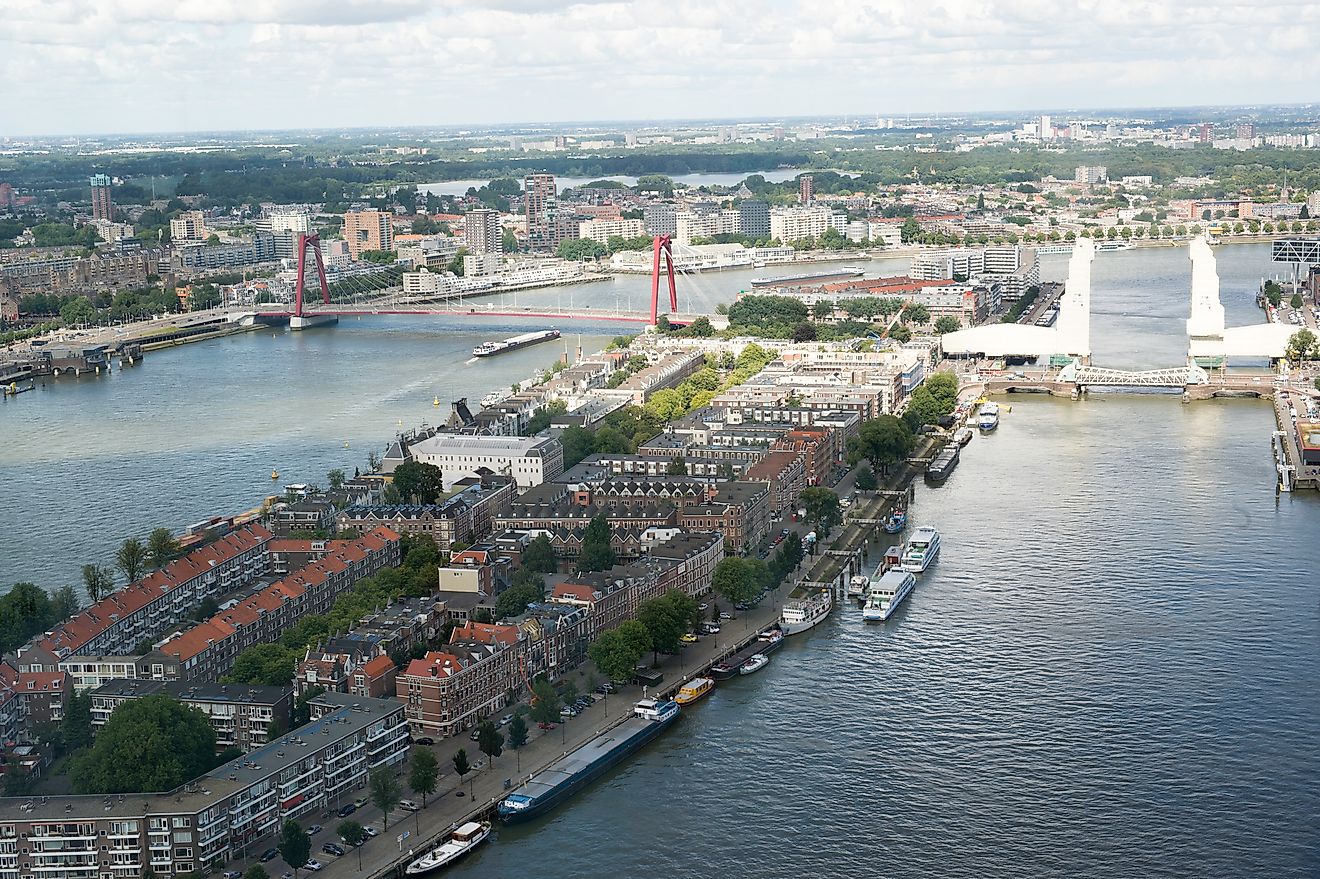Major Rivers Of The Netherlands

The Netherlands is a small but densely populated country in the Western Europe. The country is influenced by lowland and flat geography with less than 50% of the land exceeding a meter above the sea level (hence the name “Netherlands”). Much of the land area below the sea level is manmade. Despite the low altitude and the dense population, Netherlands is the second leading exporter of agricultural products. Much of Netherlands was formed by the major European rivers and their tributaries. The country is also divided into the north and the south by the country’s major river, the Rhine. The rivers in Netherlands play both administrative and economic roles.
Major Rivers Of The Netherlands
Rhine
The Rhine River is the longest river in Netherlands covering a distance of 764 miles. It is also the second longest river in Western and Central Europe. The river passes through six countries including the Netherlands, France, Germany, Switzerland, Austria, and Liechtenstein. Rhine River begins from the Swiss canton of Graubunden in Swiss Alps and flows through Rhineland and empties into the North Sea in Netherlands. In Netherlands, the Rhine passes through several cities including Arnhem, Nijmegen, Utrecht, and Rotterdam. The Rhine is divided into the Lower Rhine, the Middle Rhine which runs through Germany, the Upper Rhine which runs through Basel, and the High Rhine which emerges from Lake Constance. The Rhine is the primary source of household water for most of the cities that it passes through. The waters of the Rhine have been used for agriculture in Netherlands. It is also an efficient transport route in all the six countries and an important borderline in Switzerland, Germany, Liechtenstein, and France.
Meuse
Meuse River is the second longest river in Netherlands and one of the largest European river covering a distance of 575 miles. It rises in France and flows through Netherlands and Belgium before emptying its waters into the North Sea. In Netherlands, the river is known as “Masa” while in France it is commonly referred to as the “Mosa.” It forms the Belgian-Dutch border in the north. In Netherlands, the river flows through Venlo and turns westwards where it runs parallel to Waal forming part of the Rhine-Meuse-Scheldt delta. It is then divided into Afgedamde Maas and Bergse Maas near Heusden with the former joining the Waal. The Meuse is Navigable and is a major part of navigation infrastructure in Netherlands. It is also an important source of water for several departments, provinces, and towns of Belgium, France, and Netherlands. The river is also mentioned in the first stanza of German’s old national anthem and represented in the documentary “The River People.”
Eems
Ems River, or Eems as it is called in Dutch, is a river in northwestern Germany that runs through North Rhine-Westphalia and Lower Saxony states before discharging into the Dollart Bay. It covers a distance of 231 miles. The source of Ems River is at the southern Teutoburg Forest. It is joined by Hase River which is its largest tributary and then flows close to the Dutch border and continue towards Delfziji as a tidal river. It then discharges into the Wadden Sea which is part of the North Sea. Eems River is a famous tourist attraction apart from the water it supplies to the cities and municipalities. It is also an important highway of industrial transportation.
Significance of Rivers in Netherlands
The Netherlands, being the second higher agricultural producer after the US, depends heavily on its rivers for irrigation. The waters are drawn from these rivers using modern technologies that make it easy for irrigation. Netherlands also rely on rivers for the transportation of the agricultural produce to different provinces and municipalities
.
Major Rivers Of The Netherlands
| Rank | Major Rivers of the Netherlands | Total Length |
|---|---|---|
| 1 | Rhine | 764 miles (shared with Switzerland, Liechtenstein, Austria, Germany, and France) |
| 2 | Meuse | 575 miles (shared with Belgium and France) |
| 3 | Eems | 231 miles (shared with Germany) |
| 4 | Schelde | 220 miles (shared with Belgium and France) |
| 5 | Roer | 106 miles (shared with Belgium and Germany) |
| 6 | Dommel | 91 miles (shared with Belgium) |
| 7 | Gelderse IJssel | 78 miles |
| 8 | Linge | 62 miles |











